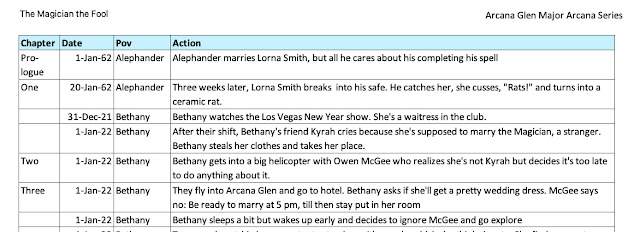Summaries: Outlining After the Fact
However, I'm not a slave to my outline. I still do plenty of "discovery writing," in which, only in the writing of a scene do I discover a crucial character, setting or plot point that turns the whole story on its head.
And that's great--it usually makes the story better and it often makes it more fun to write.
BUT...
It also means that my original outline is often hopelessly out of date by the time I've finished the complete novel. That means if I want to brush up on events from that book to help refresh my memory to write a scene in a later book, I can't simply check my original outline.
I have to write a NEW summary outline of the book, based on the completed manuscript.
And, hoo boy, is that a pain in the arse.
Really.
Writing an outline is fun. You're making up the story, so you're using your imagination, you're excited about delving into the characters and the setting, it's part of the discovery process. Yes, it's work, but sometimes its even more fun to write the outline than to sit in front of the blank page and try to figure out how to turn that two-sentence scene in the outline into a working scene with, you know, sentences full of words.
But a summary has neither the creative flow of an original outline nor of a flowing scene. It's like reporting a crime after the fact. You stare at the corpse and stick to the facts--and JUST THE FACTS, MA'AM. This is not the time to get creative. This is not a good time to notice gaping plot holes either. You write down a summary of what your earlier self put to paper.
As I'm editing the final drafts of the later Major Arcana series books, I was struck by the horrid revelation that I needed up-to-date summaries of ... well, pretty much ALL the books in the series. I had strayed pretty far from my original outlines every time. Or I had written my final outline on 3x5 cards, which I'd since thrown away.
You can see an example of what I mean above. I've dryly summarized the first couple scenes of the book. Summary is a pretty good skill to develop, however, because if you want to submit your book to an agent, develop it for another media, or, as I did, use it for your own reference.
(If despite the dry summary, you're still interested in reading the book, you can find it on your favorite site by CLICKING HERE.)


Comments